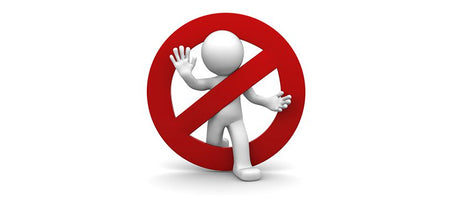Latest Posts

In Your Corner, Leadership and Change Management
A Thank You Letter to Educators
All of those who work in our schools can be proud of the way they faced the unknown with the COVID-19 crisis and found unique ways to serve our students. Examination will reveal that whenever our country has faced a huge task, America has turned to the schools and all the people who work in them to get the job done.
In the last 120 years, we have had three different eras that required the county to change drastically. Schools and the entire school team performed magnificently in each of these eras to keep this country a world leader. Indeed, in the past 120 years, one decade after another, the entire school team served with distinction. We need to be proud of the role teachers and staff are still playing. Remembering success in the face of past challenges can serve all of us well today and tomorrow.
First was the manual labor era. In the 1800s it took 95% of our population to feed this nation. Planting, tending, and harvesting crops were regarded as more important than schooling. A minority of children were educated. School schedules revolved around the labor needs of the family farmer. It also was assumed that anyone could teach.
Later, requirements to teach were enacted. To teach, a person had to have attended school one or two grades beyond the grade they taught. Manual laborers made up the bulk of workers in both rural and urban environments. The workday was 12 hours…and the work week six to seven days. Less than 5% of our population entered college. The standards and requirements in schools were not very high. “Come when you can” was more of a rule for students than “come every day.”
Then came the industrial era and everything changed. It brought a migration from the farm to the city with a need for a large workforce that could read and write as well as operate industrial machinery. As the complexity to produce, operate, and maintain equipment increased, so did the need to have a workforce that could read and write, as well as run, fix, maintain, and build industrial equipment.
The call to meet the needs of our country changed. Our schools were counted on to meet this need. We realized that to support a mass production economy, we had to have a mass consumption society to keep things going. To get more kids in the classroom and have them be successful in the workforce, we implemented a system of mass education that included students from every background and social status. Our country prospered and thrived as a result.
Then came World War II. The government promised all GIs a free high school or college education when the war was over. To facilitate their success, funding was provided to support education opportunities for them at unprecedented levels.
By the 1950s, over 50% of all eligible young people were in high school. We increased teacher certification requirements again. Our teachers had to have more skills to teach their students with a wide variety and level of abilities. Both worker and management needs in business and industry as well as demands for professional skills increased—and college enrollment rose to 10% of the population.
The industrial era also brought social and labor unrest, rebellions, and demands from minorities for more rights in the 1960s. Again, the country turned to our schools to integrate, include more students, teach our minority students, and educate children with different physical and mental needs. Schools responded. By the late 1970s, over 90% of all our children eligible to be in school were in our classrooms. Teachers took a more respected place in society. Employment as a teacher without a degree was not allowed. Requirements for continuous teacher certification included additional college study and certification periodically. The master’s degree became common and even more advanced degrees were not rare.
Then, the 1980s introduced the high-tech era. The computer brought the need for even greater skills and more sophistication in the workplace. Accelerating the trend of the industrial era, fewer people were needed to produce greater quantities of work. Fewer people were needed to get more work done a whole lot faster and much more accurately. Again, our country turned to our schools to prepare students for a new kind of work and job. And again, as they have through history, educators did the job.
We have now moved to a high-tech knowledge and skill-based society. Most jobs are no longer in the manufacturing sector of the economy. Education now faces the challenge to meet the needs of this latest era.
The wide range of comprehensive services schools provide to students, parents, and society now exceeds those of almost any public institution—and more seems to be expected of schools as the days pass.
Leading up to and during this COVID-19 crisis, schools continued serving students in ways that are unbelievable. In addition to teaching them, schools bussed children to school and took them home every day. Schools were feeding students both breakfast and lunch at school and taking meals to their homes. Schools provide healthcare. Counseling services are provided and attention is given to the social needs and extracurricular needs of students. Schools compensate for mental and physical strengths and weaknesses of students. And services for students with special needs are provided. Schools have had to teach students at home and at school. During the crisis, many teachers taught their students online and then had to turn around and teach their own children.
These realities should make the entire team of every school proud. The entire team means everyone: administrators, teachers, counselors, paras, coaches, administrative assistants, nurses, cooks, custodians, bus drivers, members of the board of education, and support staff. Each member of this team is vital to meeting the needs of our students. They have done the exceptional during one of the most difficult times of our history—and they will continue until the crisis is over.
Thank you, thank you, thank you. The entire school team has done more good for more people, more consistently, and more effectively than we would have thought possible just a few years ago. The tradition of superior performance continues in our schools. Bless all of you. Just take a moment to take pride and joy in what you have achieved. You are all wonderful.

In Your Corner, Thinking Frames
Choose to Have Your Best Life Now
An old man says to his grandson: “There’s a fight going on inside me. It’s a terrible fight between two wolves. One is evil—angry, greedy, jealous, arrogant, and cowardly. The other is good—peaceful, loving, modest, generous, honest, and trustworthy. These two wolves are also fighting within you, and every other person too.”
After a moment, the boy asks, “Which wolf will win?”
The old man smiles.
“The one you feed.”
Most of us can relate to this parable. Our wolves may not represent the stark contrasts of good and evil. They may more closely resemble the contrasts of being anxious, frustrated, pessimistic, and fearful—or calm, peaceful, happy, optimistic, and productive. But regardless, the wolf we choose to feed will be the truth and the reality of the world we live in.
This is important, because the wolf we feed will be the one we most often communicate to our students, colleagues, friends, and family members. And our choice will shape the relationship and the influence we have on these important people in our lives.
So what does “feeding” in this context mean? And what are some practical things we can do to make sure we are feeding the right wolf? Because the truth is there is really only one worth pursuing—for our own happiness and success and the happiness and success of those around us.
First, we can examine what we give most of our attention to. Is it to news stories that feed our worst penchant for what is negative or sordid and conversations that promote anger and polarization? Or is our attention focused around those influences that make us feel more optimistic, happy, and productive?
Second, we can make better choices about our attitude. Realistically, few people have a good attitude 100% of the time. But still, we must remember that our attitude is a choice. People who have what we would call a good attitude may not have one naturally. They choose to have one, and their continuous choice to do so then becomes a habit. Like anything else we want to conquer in life, forming the right habits takes work. So does turning our poor attitudes into better attitudes.
Third, we can take a good look at who we are spending the most time with. Are our friends and associates influencing us in the ways we want to be influenced? Is their example helping us pursue the highest aspirations we have for ourselves? If not, perhaps we need to rethink these associations and choose ones who help us become our best possible selves. After all, we already know the power of associations when it comes to student achievement. Students who hang out with high achievers become higher achievers themselves. So it is with us.
Fourth, we can take a hard look at what we expect. We tend to find what we are looking for. If we expect people to be basically good, we tend to find the good in people. If we expect them to be untrustworthy, we will find that too. Indeed, if we want the wolf within us to be good, peaceful, generous, and optimistic, not only will we begin to expect these things in ourselves, but we will search for and find the things in our world that confirm and support these attributes. Without doubt, there will be numerous things in our experience that will serve to counter our positive expectations. Yet, we can choose again and again to seek out real and tangible proof that the best things in life are still ahead of us. And if we do, we are highly likely to find them.
Share Your Tips & Stories
Share your story and the tips you have for getting through this challenging time. It can remind a fellow school leader of something they forgot, or your example can make a difficult task much easier and allow them to get more done in less time. We may publish your comments.
Send Us An Email













